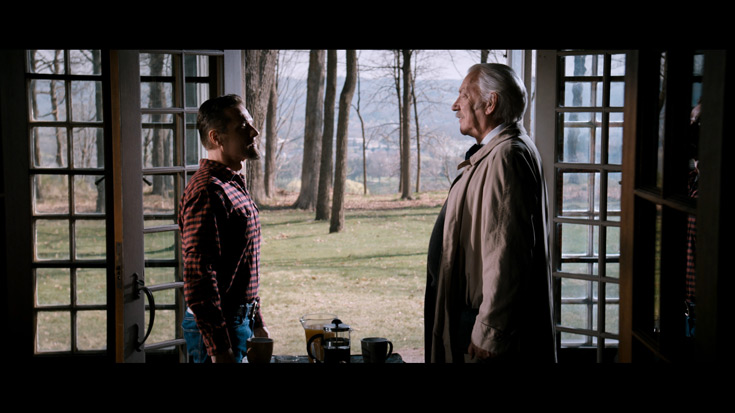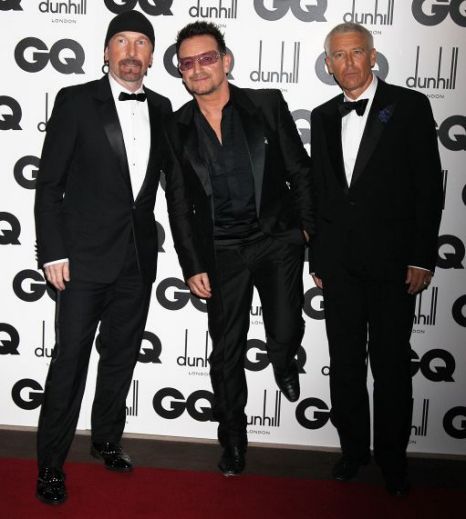Herman Hess’s Wild Influence on Bono
By Eric Shivvers
I always knew that if you wanted to become great at your craft, you had to know the masters, or were lucky enough to be a prodigy. I will say it straight out that I’m no prodigy, therefore, I had to learn my craft of being an art director from the ground up. That’s right, watching Saturday morning cereal commercials, in the mid-70s no less, impeded by cartoons such as Looney Tunes or Hong Kong Phooey. Luckily, my parents, my mom and stepfather, were academics, which lead me to travel and live in Europe as a young kid. Those experiences have stayed with me and helped me build a knowledge base of design. Added to the fact, my father’s an architect and has a voracious, creative appetite. It’s no wonder I turned out the way I did.
I had a pretty good idea, when I filled out my application to the University of Iowa, that I was going to complete my declared major of graphic design. When I got to college, I immersed myself into expanding my knowledge of who the greats were in design, painting and photography. I would emulate them. Well, actually copy them until I found my own style, which I kept pushing as my studies moved along. I found my path being no different than that of my father’s architectural desires or my mother’s love for being a wordsmith. In fact, writing is no different than designing. In order to self-express one’s self, one must read to find out how others before you created their sense of love lost, joyful disposition or contemplation of one’s woes. Bono’s a masterful lyricist who doesn’t carry a degree from an academic institution, but instead has used life’s experiences and the understanding others works in order to master his craft. I find it heartwarming that he comes from country brimming with literary talent– W.B. Yeats, Sean O’Casey, Oscar Wilde and James Joyce.
The influence of prose on the lead singer can be seen in U2’s early recordings. The Ocean, on the Boy LP, has a direct reference to Oscar Wilde’s book, The Picture of Dorian Gray. The fear Bono emulates in the song is he doesn’t want to succumb to the narcissism that comes with being a rock star. The album Boy is about the trials and tribulations of teenage angst. Such a heavy, literary reference such as this seems out of proportion to a rock song, but then again, he’s bringing Oscar Wilde’s 19th century idea into pop culture. I’m not sure how many U2 fans would take this lyric and dig further into it. Do you think most casual U2 fans would go to the library and check out the book as I did? I’m not sure. As for myself, I felt I had to read the work in order to get the whole picture, excuse the pun and I did it later in life. I’m sure my stepfather would be thrilled that I read the work, but upset that it took an Irish band, and not an Irish lit scholar such as himself, to get me to read the great work.
Why am I blabbering about this creative inspiration? Well, I will cut to the chase. Since we’re about to celebrate the 20th anniversary of Achtung Baby, I wanted to touch on some of the songs over the next couple weeks. The first is that very underrated song, Who’s Gonna Ride Your Wild Horses. Admittedly, it’s not my favorite tune on the record. I still get it confused with the Rolling Stones song, Wild Horses. I think I’m musically dyslexic that way. However, like The Ocean on the Boy LP, Who’s Gonna Ride Your Wild Horses has a literary reference. Unlike the blatant Dorian Gray reference in The Ocean, Who’s Gonna Ride Your Wild Horses tucks a Hermann Hesse book reference under the covers of the song. The line, under the trees the river laughing at you and me, is in reference to Hesse’s book Siddartha where the river in the novel symbolizes a teacher. It’s that teacher that Bono is searching for in this citation. In my mind, the teacher could be a religious reference or that of his mother speaking to him from beyond. No matter how you read it, the brilliance here is Bono’s innate ability to reference the old and turn it anew again. Pushing that age-old story about a river into a new dress, which could be “vacant as a parking lot” or “left just out of reach” either way, it makes him a grand lyricist and one who truly is a pundit of life.
You can read all about Eric’s joy for U2 in his book: I’m a Fan: How I married U2 into my life without going to the altar







